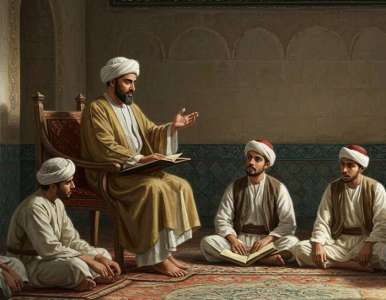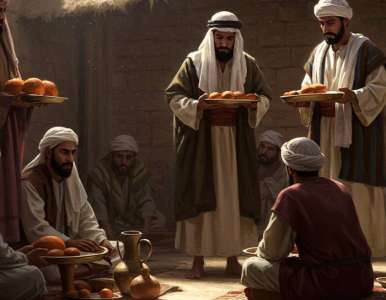In the name of Allah, the Most Gracious, the Most Merciful.
The esteemed editor of the Dalati Family website, Mr. Imad Dalati (Abu Joudat), presented to me two brief papers that are small in size but immense in content and significance. Their intellectual depth, enlightening tone, and devoted concern for the intellectual reality and ailments of the Ummah, as well as for its history with all its facets, prompted an attempt to reread history in a comprehensive, non-fragmented way—a view that sees human history as applicable, not as a flawless image or a Platonic city, surreal in spirit. I decided to respond in a selective manner, according to the intellectual context and the priorities of the current stage.
Q1: At the beginning of the second decade of the twenty-first century, Arabs and Muslims who see the past as all that is beautiful and good, and view the present only as a distortion of that beautiful past, what would you say to them?
I begin by saying: In reading our history and its pages filled with events, both sweet and bitter, it is necessary to pause at several fundamental points, in which some of our historians—especially contemporary ones—were involved, aided by others:
- The idealization by historians has blurred our view of heritage:
Over the last six decades, we have tended to extract pristine images from our history in an attempt to resist cultural alienation threatening our identity, and to preserve the heritage that Orientalists tried to distort. Then we found ourselves facing a history of seemingly angelic events, further amplified by moralizing tones that prevailed in certain periods. This narrow perspective turned history into an unattainable model. Consequently, those who came after despised themselves because they did not see themselves reflected in that idealized past, contrary to the explicit Quranic reference that among those who inherited the Scripture, some were not up to the responsibility:
(“Then We gave the Book to those We chose of Our servants; some of them are wrongdoers to themselves, some moderate, and some foremost in good deeds.”) - The extensive use of history has caused fragmentation and division:
History was often used to avoid ijtihad (independent reasoning) and to justify reliance on ready-made solutions from the past. While our task should be to research and explore, the mistaken notion that history alone provides solutions to all problems persists. Ijtihad is essential for every era the Ummah faces; we cannot borrow solutions from bygone times to solve today’s complex problems in a rapidly changing world. Notably, Islam forgives mistakes in action but rewards effort in reasoning—ijtihad—as the Prophet ﷺ said:
(“If a ruler strives and errs, he will have a reward.”) - Understanding heritage is a prerequisite for understanding the era:
When others lead an era, those isolated from it face a conflict with their past. Some seek integration into civilization, others resort to fabrication; neither approach truly comprehends the era or qualifies one to participate in shaping it. The shortest path is to study heritage without selectivity, applying the divine methodology to its forms, isolating its general truths and faults, and creating a civilizational reference grounded in Islamic guidance. This enables confident, open, and effective engagement with the present. - Many recall the past fondly but overlook its lessons:
Our relationship with the past is often limited to memorization and recollection, not reflection and contemplation. Political strife in our history did not receive the analysis it deserved; we habitually attributed events to whims, lack of piety, enemy plots, or general unrest, reducing grand events to a few words. Sometimes we are astonished that such events occurred in the “best nation brought forth for mankind,” and dismiss what is recounted as inaccurate, leaving us as if we have no past or history—a symptom of underdeveloped historical intuition. - Islamic history is not Islam itself:
We must distinguish between the pure religion of Islam and the historical errors or follies committed by its adherents at various points. While defending Islam, we may inadvertently defend those who erred historically. The divinely preserved methodology resides in the Qur’an and Sunnah; historical practices do not represent Islam and should be honestly named and addressed as such.
Rami Muhammad Dalati (Abu Hudhaifa)
25 March 2010



